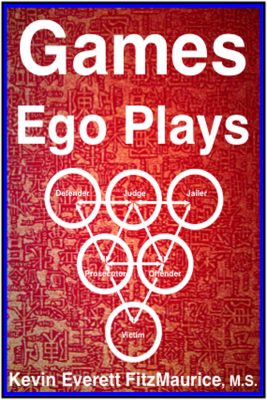15 Reasons Why You Do the Opposite
15 reasons why you do the opposite of what you want or think you should do. Self-defeating habits can be changed.
- Garden will teach you an easy and effective Cognitive Behavioral Therapy (CBT & REBT) system.
- Read and discover why you do the opposite of what you want to do.
- 15 Reasons Why will become clearer by reading this book.
15 REASONS WHY YOU DO WHAT YOU DO
- It is common to want to know “why” you have the troubles you do.
- However, pursuing “why” can be both distracting and misleading.
- Below is a list of 15 credible reasons “why” you have the psychological difficulties you do.
- Mix and match until you find the combination that best matches your experience.
15 Reasons Why: End “Why”
- Be done with “why”.
- Having “why” helps with prevention but not with rehabilitation.
- In other words, it helps to know “why” so you do not inflict the same bad conditioning on others.
- However, knowing “why” does nothing to solve your current problems.
- Instead, Recognize “what” you are telling yourself now to maintain your problems.
- Remove that thinking by seeing it as self-disturbing and self-defeating.
- Replace that thinking with thinking that is problem-solving and coping.
- This is the practice of the 3Rs.
- Overcoming your problems in the present, where you are recreating them with your self-talk, is possible and practical.
- Overcoming your problems in the past with whining, blaming, and damning the causes is just more self-disturbing and self-defeating behavior.
15 Reasons Why
Mix and Match the 15 Reasons Why for your best results.
Numbers 10, 11, and 12 are the same but different.
- You continue to engage in behavior that you know is self-defeating because:
- It is your habit.
- You do not know a better way.
- You are trying not to do it.
- You are trying to control and change it.
- You are focused on momentary shame avoidance.
- You have secret pride payoffs, rewards, and secondary gains.
- You have state-dependent learning, triggers, situational cues, and looping patterns.
- You are trying to work out related identity issues.
- You are reenacting primary relationships, hoping they change.
- You have a strong human tendency to disintegration, disorganization, destruction, death, weakness, frailty, breaking, vulnerability, Thanatos (Freud’s death instinct), and identification with the negative. Fortunately, you are born under the light and so have that tendency. Seek family, friends, lovers, communities, causes, hobbies, recreational activities, media, influences, examples, mentors, and careers that bring out your best.
- You desire, lust, covet, and want to merge with death through destruction. You want to attach to the negative literally. You crave identification with the negative. You desire to be one with the negative. This differs from number 10 above in that you are not just so inclined but driven to the negative. You are addicted to and compulsively seeking the negative once your identity has been associated with it.
For example, addictions, compulsions, self-defeating behaviors, self-destructive behaviors, emotional disorders (guilt, anxiety, depression, shame, anger, pride), rebellion, and recurring destructive relationships exist because of this desire. Hence, it is better to avoid temptation, remain pure, be wise about good and simple about evil, avoid overexposure to the negative, and keep good company. Spiritually, you can beat this by being still inside. - You automatically choose the negative when negative without a higher influence. Stress, sickness, deprivation, disruption, conflict, chronic pain, chaos, tiredness, hunger, anger, loneliness, rejection, loss, grief, feeling attacked, defensiveness, or other negative pressures will bring out the worst in you unless you have another system inside or outside to override your preference for the negative.
All physical systems tend to disorganize without an external system to guide them. Even a mathematical system needs an external system to prove and guide it (see the work of Kurt Gödel). Hence, the a need for ethics, morality, and God. This also indicates the need for self-care: eating right, sleeping right, exercising right, praying right, playing right, associating right, thinking right. - You are strongly conditioned, pressured, pushed, encouraged, trained, educated, or brainwashed to do so.
- Your associations, interpretations, and ego conflicts do not allow another perspective.
- You relate to the problem from a superstitious victim script: “It” is getting to me, they are out to get me, bad always happens to me, I never do anything right, they upset me, etc.
15 Reasons Why: Some Warnings
- Numbers 10, 11, and 12 can be turned onto self, others, society, life, and God.
- To fully understand the problem of “nots and not-ing,” read and discover Not.
- Read and discover why you do the opposite of what you want to do.
- 15 Reasons Why will become clearer by reading this book.
15 Reasons Why: Quotations Various Sources
Listed Alphabetically
“A fool is only a fool because he won’t see he is a fool.” —Kevin Everett FitzMaurice
“A man of genius makes no mistakes. His errors are volitional and are the portals of discovery.” —James Joyce
“But if ye be without chastisement, whereof all are partakers, then are ye bastards, and not sons.” —Hebrews 12:8
“By honestly acknowledging your past errors, but never damning yourself for them, you can learn to use your past for your own future benefit.” —Albert Ellis and Robert A. Harper, A Guide to Rational Living, Third Edition, p. 194
“Correction is grievous unto him that forsaketh the way: and he that hateth reproof shall die.” —Proverbs 15:5
“Failure doesn’t have anything to do with your intrinsic value as a person.” —Albert Ellis and Robert A. Harper, A Guide to Rational Living, Third Edition, p. 206
“For whom the Lord loveth he chasteneth, and scourgeth every son whom he receiveth.” —Hebrews 12:6
“If we eliminated all errors, we would also eliminate much discovery, art, insight, learning, and creativity that results from facing errors.” —Kevin Everett FitzMaurice
“If ye endure chastening, God dealeth with you as with sons; for what son is he whom the father chasteneth not?” —Hebrews 12:7
“My son, despise not the chastening of the LORD; neither be weary of his correction:” —Proverbs 3:11
“The great man is he who does not lose his child-heart.” —Mencius
“The greatest explorer on this earth never takes voyages as long as those of the man who descends to the depth of his heart.” —Julien Green
“The trouble with most of us is that we would rather be ruined by praise than saved by criticism.” —Norman Vincent Peale
“When receiving correction, the wise seeks to learn, and the fool seeks to justify with excuses.” —Kevin Everett FitzMaurice
15 Reasons Why: Scripture Quotations on Counseling
Listed Biblically
“A wise man will hear, and will increase learning; and a man of understanding shall attain unto wise counsels:” —Proverbs 1:5
“Where no counsel is, the people fall: but in the multitude of counselors there is safety.” —Proverbs 11:14
“The way of a fool is right in his own eyes: but he that hearkeneth unto counsel is wise.” —Proverbs 12:15
“Deceit is in the heart of them that imagine evil: but to the counselors of peace is joy.” —Proverbs 12:20
“Without counsel purposes are disappointed: but in the multitude of counselors they are established.” —Proverbs 15:22
“Hear counsel, and receive instruction, that thou mayest be wise in thy latter end.” —Proverbs 19:20
“Every purpose is established by counsel: and with good advice make war.” —Proverbs 20:18
“Take counsel, execute judgment; make thy shadow as the night in the midst of the noonday; hide the outcasts; bewray not him that wandereth.” —Isaiah 16:3
“Extol not thyself in the counsel of thine own heart; that thy soul be not torn in pieces as a bull [straying alone.]” —Ecclesiasticus 6:2
“As timber girt and bound together in a building cannot be loosed with shaking: so the heart that is stablished by advised counsel shall fear at no time.” —Ecclesiasticus 22:16
“Give not over thy mind to heaviness, and afflict not thyself in thine own counsel.” —Ecclesiasticus 30:21
“A man of counsel will be considerate; but a strange and proud man is not daunted with fear, even when of himself he hath done without counsel.” —Ecclesiasticus 32:18
“And let the counsel of thine own heart stand: for there is no man more faithful unto thee than it.” —Ecclesiasticus 37:13
“Let reason go before every enterprize, and counsel before every action.” —Ecclesiasticus 38:33
“Gold and silver make the foot stand sure: but counsel is esteemed above them both.” —Ecclesiasticus 40:25
- Read and discover why you do the opposite of what you want to do.
- 15 Reasons Why will become clearer by reading this book.
15 Reasons Why: Related Pages of Free Information
- Blame or Responsibility: 100 Excuses
- Cause of Suffering
- CBT, CT, & REBT Cognitive Psychotherapies: List Pages
- Coping Skills: Free Help
- Counseling Issues: Free Help
- Ego & Self-Esteem Fast-Facts
- Emotional Responsibility: List Pages
- Exercises & Techniques: List Pages
- Feeling & Coping: Fast-Facts
- REBT (Rational Emotive Behavior Therapy): List Pages
- Self-Esteem Issues: List Pages
- Unconditional Self-Esteem (USE): Defined
- What, How, & Why Questions
- Why Not Why?
- Read and discover the best diagrams and maps of how people play games with your mind and heart.
- Read and discover how CBT, REBT, & Stoicism evolved into one system: STPHFR.
- Read and discover why you do the opposite of what you want to do.
- 15 Reasons Why will become clearer by reading this book.
15 Reasons Why: 6 Groups of Topics Menu
- 1. Pages by Topic
- 2. Fast-Facts by Topic
- 3. Quotations by Topic
- 4. Poems by Topic
- 5. Scripture by Topic
- 6. Websites by Topic
- Read and discover how CBT, REBT, & Stoicism evolved into one system: STPHFR.
- Read and discover the world’s best breathing exercise for centering and peace of mind.
- 15 Reasons Why can be shortcircuited by practicing this exercise.
- Read and discover why you do the opposite of what you want to do.
15 Reasons Why will become clearer by reading this book.
15 Reasons Why: 9 Skills & Topics Menu
- 1. Anger Skills & Topics
- 2. Blame Skills & Topics
- 3. Communication Skills & Topics
- 4. Coping Skills & Topics
- 5. Counseling Skills & Topics
- 6. Praying Skills & Topics
- 7. Recovery Skills & Topics
- 8. Responsibility Skills & Topics
- 9. Thinking Skills & Topics
- Read and discover how CBT, REBT, & Stoicism evolved into one system: STPHFR.
- Read and discover the world’s best breathing exercise for centering and peace of mind.
- 15 Reasons Why can be shortcircuited by practicing this exercise.
- Read and discover why you do the opposite of what you want to do.
- 15 Reasons Why will become clearer by reading this book.




